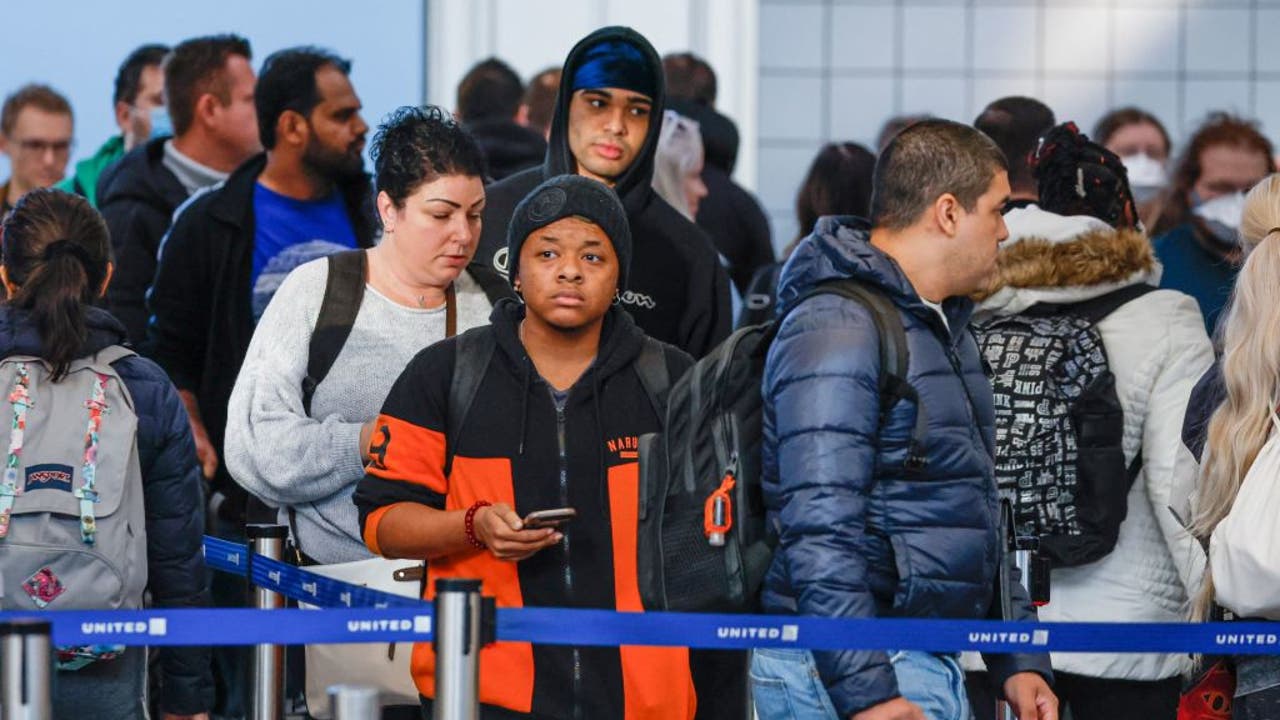Bussiness
South Florida businesses play waiting game with new FTC ban on ‘noncompete’ agreements

There have been times when Michael Pappas, CEO of The Keyes Co., the sprawling South Florida real estate firm, has wondered about the longevity of his broad roster of salespeople.
“We had thousands of agents,” he said, “and when I was younger I used to go to sleep and hope the next day they all showed up.”
Pappas spoke this past week in the context of a new federal ban on employee noncompete agreements imposed by the Federal Trade Commission, which says it acted to foster more job mobility among employees nationwide.
“We have employees that are management and in leadership that probably would be affected by that,” Pappas said in an interview with the South Florida Sun Sentinel. “But the independent contractors — we could never stop them and [the agreements] were never enforceable before.”
“We’ve got people who have been with us 20, 40, 50 years,” Pappas said. “We’ve got a lifetime of individuals.”
But what if someone wants to leave?
That’s what the FTC asserts it wants to make easier for workers with the rule that bars companies from restricting where an outbound employee may work when perceived greener pastures beckon.
What the rule would do
In a statement, the commission asserted its rule would:
- Negate existing noncompetes “for the vast majority of workers” as their agreements “will no longer be enforceable after the rule’s effective date.”
- Preserve existing noncompetes for senior executives who make more than $151,164.
- Ban employers from entering into or attempting to enforce new agreements, “even if they involve senior executives.”
- Require employers “to provide notice to workers other than senior executives who are bound by an existing noncompete that they will not be enforcing any noncompetes against them.”
“Noncompete clauses keep wages low, suppress new ideas, and rob the American economy of dynamism, including from the more than 8,500 new startups that would be created a year once noncompetes are banned,” said FTC Chair Lina M. Khan in a statement. “The FTC’s final rule to ban noncompetes will ensure Americans have the freedom to pursue a new job, start a new business, or bring a new idea to market.”
The commission asserted the rule would “generate over 8,500 new businesses each year, raise worker wages, lower health care costs, and boost innovation.”
It also predicted worker earnings would rise by $524 per year, and their health care costs would decline by up to $194 billion over the next decade. The rule would also generate an average increase of 17,000 to 29,000 more patents each year over the next 10 years, the agency contended.
“Noncompetes often force workers to either stay in a job they want to leave or bear other significant harms and costs, such as being forced to switch to a lower-paying field, being forced to relocate, being forced to leave the workforce altogether, or being forced to defend against expensive litigation,” the commission said. “An estimated 30 million workers — nearly one in five Americans — are subject to a noncompete.”
“The commission found that noncompetes tend to negatively affect competitive conditions in labor markets by inhibiting efficient matching between workers and employers,” the agency added, while “inhibiting new business formation.”
The agency said that businesses worried about losing trade secrets can rely on nondisclosure agreements “to protect proprietary and other sensitive information.”
The final rule will become effective 120 days after it is published in the Federal Register.
Delayed by lawsuit?
But several labor and employment lawyers interviewed by the South Florida Sun Sentinel noted it likely will be more than four months before the rule takes effect — if the courts uphold it.
“My experience has been that when something comes out there is an immediate challenge, and historically there is a stay,” said Michael Gore of the Jones Foster law firm in West Palm Beach.
Sure enough, the U.S. Chamber of Commerce and several other business groups in Texas fileed suit in a Texas federal court to block the action.
The suit alleges the FTC lacks the authority to implement such a rule, which the groups believe is too broad.
“The sheer economic and political significance of a nationwide noncompete ban demonstrates that this is a question for Congress to decide, rather than an agency,” the U.S. Chamber, which represents roughly 3 million companies, said in the lawsuit filed in the Eastern District of Texas.
Getting prepared
In the meantime, legal advisers say companies should be reviewing their existing employee agreements to determine which ones may need to end under the rule and which ones can survive.
Roger Feicht, an employment lawyer at the Gunster law firm in West Palm Beach, said he and his colleagues met last week to assess what they should be telling their clients.
“The first piece of advice I’m sharing is to wait and see and closely follow the lawsuit that has been filed in Texas,” he said. “That process has been used to challenge other federal agency actions in the past. The question will be whether there is a temporary restraining order or permanent injunction preventing them from enforcing the rule.”
In the meantime, he added, “now is the time to catalog and take note of the existing agreements and whether any of them would survive so the business is well prepared to comply with the final rule.”
Florida law is friendly toward noncompetes and is likely to be impacted. California and several other states ban them, while some allow the agreements under more narrow circumstances than Florida.
“This rule impacts Florida in particular just because we have a state law that has recognized the right of businesses to use them for years,” Feicht said.
Diane Perez, a labor and employment lawyer in Coral Gables, said she has received calls from employees inquiring about the enforceability of their noncompete agreements.
“Employers should not be rescinding noncompetes,” she said. And employees should not be heading for the exits.
“Everyone needs to remain calm and let’s see what happens in the courts,” Perez said, adding that the litigation could well head for the U.S. Supreme Court.
Gore said it’s important “to make sure your agreements comport with Florida law as well.”
Florida law “strikes a balance” between allowing an employer to protect their assets versus an employees’ “inalienable right” to work in Florida.
“To enforce a noncompete, an employer has to prove it is protecting a valuable asset,” Gore said.
Andrew Zelman of Berger Singerman in Fort Lauderdale said employers should make lists of employees with noncompete agreements and be prepared to distribute notifications that the rule applies to them.
“As of the date [the rule] is enforceable, all employers must provide notice to those employees,” he said, via text, email or regular mail.
“Monitor when the [rule] actually hits the Federal Register and see what happens with the Texas case,” he added.
“There are protections that do not appear to be disturbed by this act,” Zelman said. “We’re not in purgatory here. There is a senior executive exemption.”
Fight for talent
The organized labor giant AFL-CIO hailed the ruling as a move that will cut restraints against worker movement from one job to another.
“Noncompete agreements trap workers from finding better jobs, drive down wages, and stifle competition,” the organization said in a social media post. “We commend the @FTC and @linakhanFTC for finalizing a strong rule to ban these exploitative practices and level the playing field for American workers.”
In South Florida, a region with unemployment rates below the national level and rising employer demand for talent, the end of noncompetes could enhance worker movement.
”The concerns about the lack of talent are going to dissipate slightly with this ban if it’s not enjoined by the court,” said Rick Arce, an attorney with Perlman Bajandas Yevoli & Albright in Coral Gables.
“It would allow the free flow of employees without moving outside the geographical constraints imposed by a noncompete.”
Zelman agreed that options would “open up for employees as they can go and ply their trade somewhere else.”
But he added that noncompetes have value.
“You’re going to be paid more money if you agree to a noncompete,” he said. “There is value there, and that value is going to go away.”
Protections remain
Companies can still safeguard their secrets and other proprietary information through nondisclosure and nonsolicitation agreements. The latter prevents departing employees from soliciting a former employer’s customers, employees, or ideas for personal gain or for the gain of the new employer.
“There is still protection,” Arce noted, as the FTC did not include those agreements in its ban against noncompetes.
Perez agreed.
“If the rule goes into effect, then technology companies opening here will still have some level of protection with regard to intellectual property,” she said.
Nondisclosures: A better option?
Mark Goldstein of Reed Smith in Boca Raton said it’s more important “that employers have clear agreements in place” such as nondisclosure pacts that bar employees from disseminating proprietary information to rival employers.
One area where noncompetes do not appear to be an issue in South Florida is among startup companies operated by entrepreneurs who are flocking to the region.
“Throughout the year I haven’t heard noncompetes to be a concern either way, whether they should have them or not have them,” said Andrew S. Duffell, president of the Research Park at Florida Atlantic University in Boca Raton. The park is home to the FAU Tech Runway as well as Global Ventures, a group of more advanced enterprises.
“From an “eco-system perspective, it’s not a bad thing that people move from firm to firm and take innovative practices and ideas to make firms in general more efficient so long as they are not divulging protected property,” Duffell said. “The diffusion of ideas in general is good for business, making them more competitive.”
But there has been more of a reliance on nondisclosure agreements for people on the move.
“That seems to be the preferred route people have gone,” he said.
Saying good-bye
In the end, achieving good will through mutual agreements are the best way to manage departures, executives say.
“If there’s a break you don’t want to do harm,” said Pappas, of The Keyes Co. “You need to find a way to exit and work it out positively. Nobody wins in a fight.”
Goldstein of Reed Smith predicted some employers might arrange “garden leaves” for outgoing employees. They essentially protect businesses from workers sharing confidential information such as client lists or trade secrets, while the employee gets some financial stability while transitioning to another firm.
“For a period of time, three or six months after the employment ends, you stay on and not do anything,” Goldstein said of the practice that is designed to allow for an employee’s smooth transition out of a company. Under the arrangement, the employees literally “sit home” and collect their salaries.
“It doesn’t trigger the noncompete clause,” he said.










